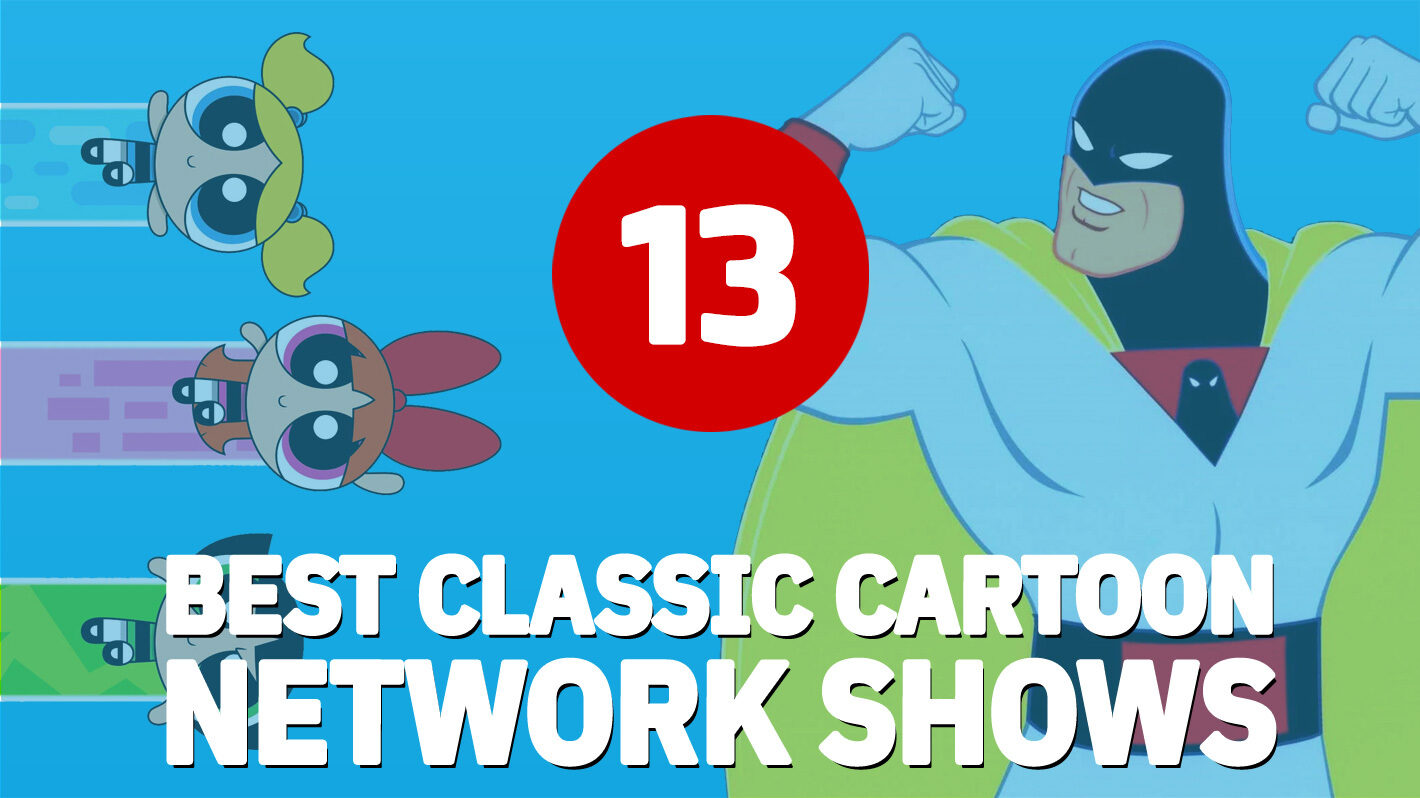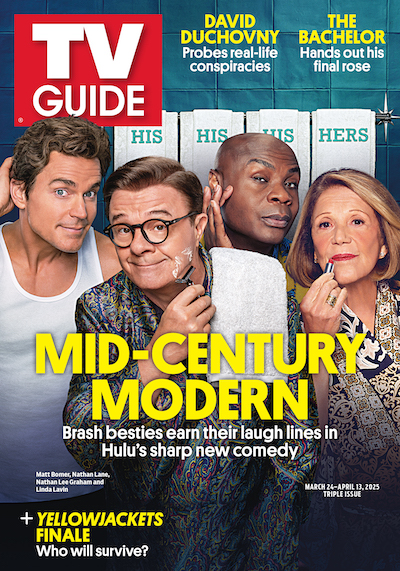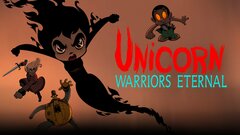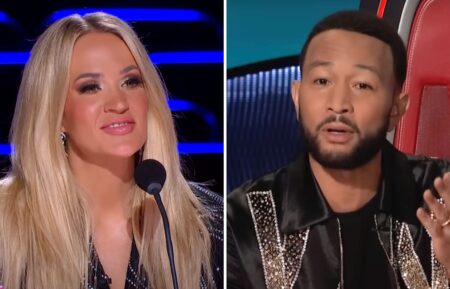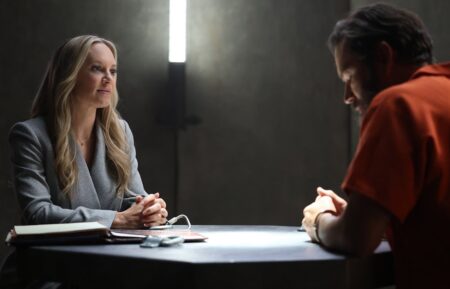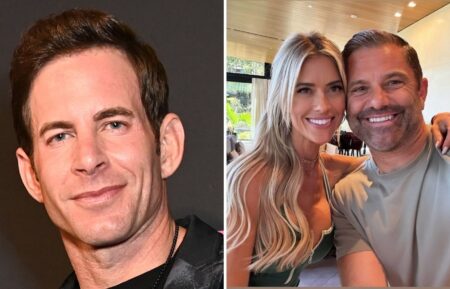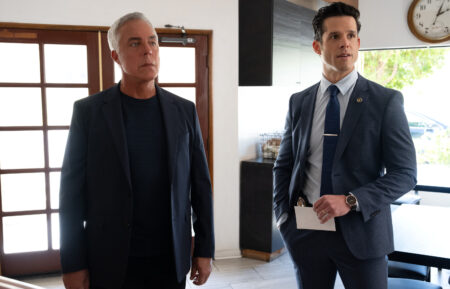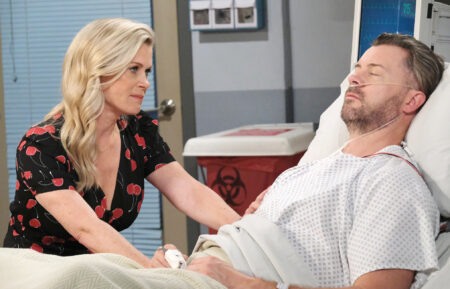Genndy Tartakovsky Explains How ‘Unicorn: Warriors Eternal’ Coming-Of-Age Tale Is Told Throughout Time
Genndy Tartakovsky is responsible for creating cartoons that have gone on to define a generation of ’90s kids, with works such as Dexter’s Laboratory and the action-centric Samurai Jack.
Now he’s set on creating animated series’ for his now-adult audience with mature shows like Primal and now Unicorn: Warriors Eternal, set to premiere on Adult Swim on May 14.
Echoing the cinematic artistry of Tartakovsky’s previous critically-acclaimed projects, Unicorn: Warriors Eternal sees an evil force looming across the dark, thick-aired streets of industrial revolution London when a group of heroes dubbed Unicorn are accidentally reawakened in the bodies of teenagers instead of the adult hosts they’ve embodied in the past: Melinda (Hazel Doupe), a powerful sorceress, Seng (Demari Hunte), a cosmic monk, and Edred (Tom Milligan), a warrior elf. With distorted memories and their magical abilities weakened and fragmented, the trio must work together with help from their steam-powered robot, Copernicus, to unravel the mysteries of their pasts and present that will reveal their path to defeating a timeless threat.
TV Insider spoke about the upcoming series, its themes, and the journey of its characters.
What can you tell us about Unicorn: Warriors Eternal?
Unicorn is basically about these heroes being reborn, and they’re solving a mystery of why they’re younger now and what has happened that’s different than [in] the past. They have fragments of their memories, and at the same time, they’re trying to find out who they are, especially Melinda, who now feels that she’s two people in one. It’s a giant metaphor for kinda coming of age or becoming a teenager, or becoming an adult.
It’s all that stuff where, you know, I have younger kids who have become teenagers, what if all of a sudden they became adult age […] ‘Wow, what happened to my daughter?’ You know, ‘What’s going on?’ And then they come back as my older son, 21, so it’s a lot of this character development stuff all wrapped into the super cool steampunk, Good versus Evil type of thing.
What made you want to tell this story here and now? It sounds like maybe parenthood played a part in it.
I created it, like, I think, in 2002, initially. And it became, in the beginning, it was more about magic versus science or magic versus technology, right? Robots versus magic. And then through the years of development, and the failure of selling and buying and all that kind of stuff. That became less important and more cliche because we’ve seen the robots trying to take over the world, you know, sci-fi stuff many times, and would rise to the top was this character development.
And yeah, like you’re saying, myself, being a parent, and growing with my kids and seeing the changes. It felt like such an organic vehicle for those stories where you wake up, and all of a sudden, you’re two people, and how do you deal with that? You know, your old life now has no meaning, but it does, you know what I mean? And so the past and the future, and the present, all collide together.
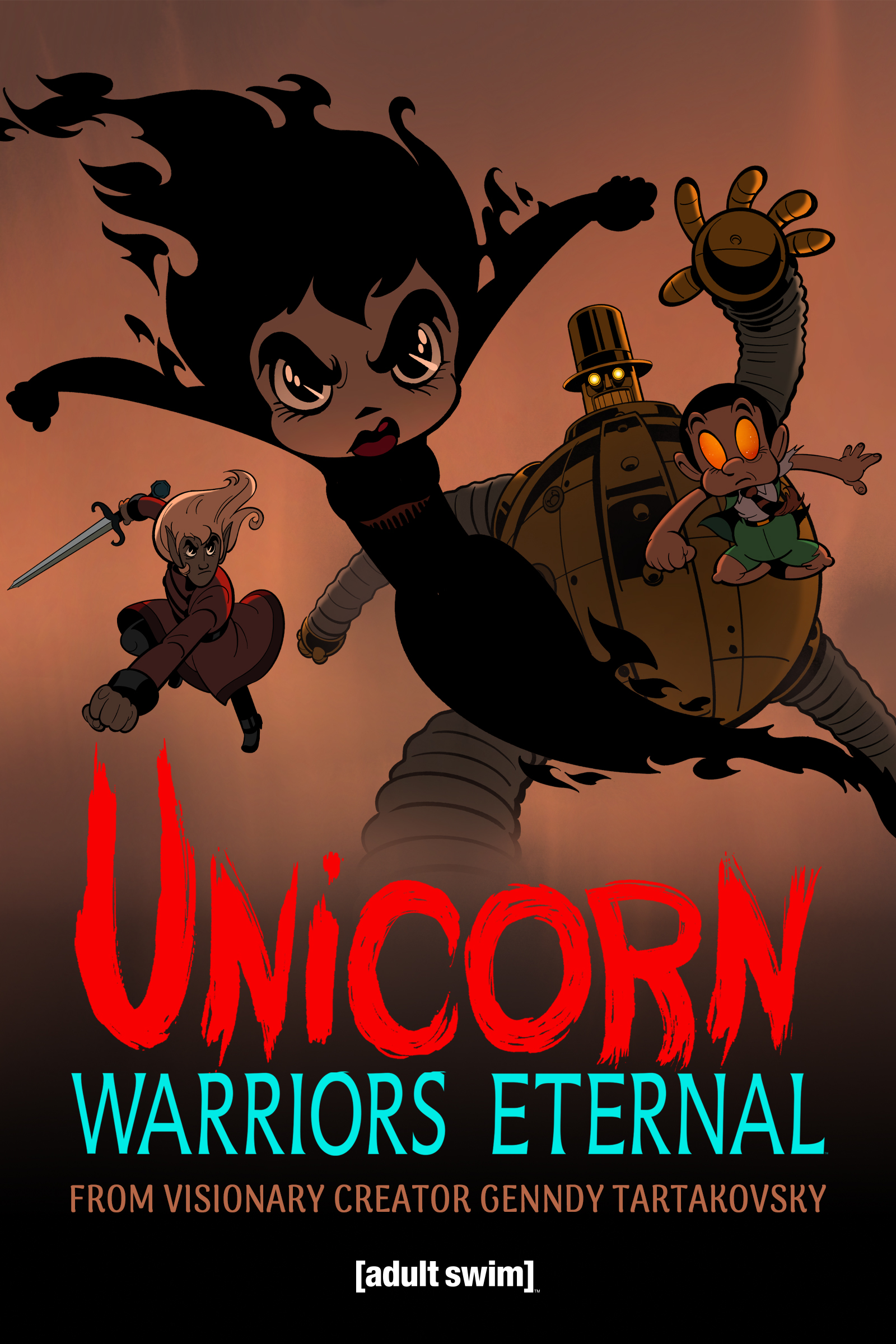
Adult Swim
The concept of existing across all time echoes heart warmth and tragedy – can you explain some of the themes at play here?
It’s definitely finding your place in the universe to a degree. Living up to the past; […] what your duties are. Having responsibility for something grander than who you are, which is, you know, which is a very superhero theme, […] as soon as somebody becomes a superhero, they have to figure out, ‘well, what am I going to do with these powers?’ And so, it has all of that because, obviously, I’m a comic book fan, so all those themes come around.
But the thing that we dialed in the most is more the character journey of really Melinda figuring out who she is and how she’s going to deal with it. She’s trying to fight against it, Emma’s trying to get Melinda out. And Melinda is trying to save the world at the same time and deal with all her issues, which also leaves doubt. So it really becomes this character journey in this gigantic world that spans eternity to a degree. So yes, it’s small-character stories set in this big universe.
The character designs are cartoonishly charming and very expressive. How did you and designer Stephen DeStefano decide on the art direction?
Well, that’s the thing that I’ve been trying to do. And then you can see it through Primal through Samurai, Dexter. It’s always cartoony and expressive. I never want to have the same reaction twice. It’s, however way we’re going to draw it that’s specific to the scene. And Unicorn is an extension of that. But in 2002 or so, I got an opportunity to write an Astroboy script (2009 film), and so to do the script, I read all the comics by [Osamu] Tezuka. And what I discovered is a whole new world.
And, of course, he’s influenced by Fleischer [Studios] and the Disney of the ’30s and early ’40s, maybe, and you know, the animation world is very incestuous. So I’m definitely influenced by Fleischer, and Stephen is definitely influenced by that too. And he has this ability where he could have been like a Golden Age animator because he’s one of the few people that can draw like that, and it looks like it’s from that old time period. And then, we make it with this contemporary style of storytelling. So it feels different.
But what we’re after is real characters, even though they’re goofy looking, and like you’re saying, the expressions are so extreme–you still feel for them. It’s like that scene in Snow White when she’s dying, and then the dwarves are all around the bed, and they’re crying, and the whole audience is crying. And you feel the emotion even though they’ve got these giant bulbous noses and stuff and, and it’s hilarious, but you forget about all that, and the characters come through.
Unicorn: Warriors Eternal, Series Premiere, Midnight, May 4, Adult Swim/HBO Max
From TV Guide Magazine
How Hulu's 'Mid-Century Modern' Is a 'Golden Girls' for Our Times
Settle in for some older and bolder laughs with the BFFs of a certain age in the new comedy starring Nathan Lane, Matt Bomer, and Nathan Lee Graham. Read the story now on TV Insider.

